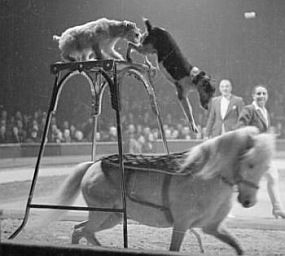Between the silence of the mountains
And the crashing of the sea
There lies a land I once lived in
And she’s waiting there for me
But in the grey of the morning
My mind becomes confused
Between the dead and the sleeping
And the road that I must choose
I’m looking for someone to change my life
I’m looking for a miracle in my life
And if you could see what it’s done to me
To lose the love I knew
Could safely lead me to
The land that I once knew
To learn as we grow old
The secrets of our soul
In searching for some factoid last week, I stumbled into a piece about The Moody Blues and their top songs, one of which is “Question” (shown in the excellent video above).
I always liked that song. The plaintiveness of the question that erupts from the heart of the singer resonates.
Many people are looking at life right now and asking how it is we are where we are. Beyond the questions that afflict us all comes that one individual query, the one that haunts a lot of us who scout our personal situations and ask what happened to that place of refuge and hope from long ago, that “land that I once knew.”
I turn 50 in a few weeks, and I guess that’s good enough time as any to get introspective. Now more than ever, I run into fellow travelers paralyzed by the search for the land they once knew, for someone to change their lives, for some miracle to happen that will forever alter the inevitability of the road they find themselves on, the road that winds through the grey mists of morning that lead into forgetfulness and loss.
How is it that some people seem to find their mission and fulfill it, while other people look and look and yet the road never makes itself clear?
How is it that some people can clearly see where they have come from and where they are going, yet they never quite get to their destination?
How is it that some people find the opposition to their entire journey so strong that it never truly begins?
Where the trouble for me begins is that I know a lot of Christians who are stuck in these No Man’s Land locations. For whatever reason, they’ve been sidelined. All those things they hoped to do now seem less likely than ever. The vision that lit up their early lives now flickers, a cooling ember inside a broken heart. You can see that cool nostalgia in their eyes and hear the tremor in their voices when they tell their stories, especially when they reflect on what might have been.
Some wonder how it was that they had a yearning for foreign missions, yet every opportunity to do those missions blew up or met with seemingly pointless resistance.
Some wanted nothing more than to work with young people, yet the vicissitudes of life kept pulling them away, and now they no longer understand youth.
Some wanted to change the world for Christ, yet they got drawn into the embrace of the American Dream and saw their youth and enthusiasm sucked dry by it.
And some reflect on it all and wonder if they are the ones who put their hands to the plow but then looked back. And they wonder if there is any redemption for that very human failing, a second chance, a ticket back to that land they once knew, where they could start again and do it all right this time.
I think there are a lot of people who found that Someone who changed their life. And yet the finding somehow didn’t shield them from broken hopes and dreams, especially when those hopes and dreams were to be all they could be for that Someone.
There is no joy being caught in that time of discernment yet unable to tell the difference between the dead and the sleeping. When the road we take from here seems obscured. I don’t know what to say to people when I see them struggling to find how to move on when there appears to be no place to move to. I hope that whatever words come out of my mouth have some of God’s life in them, but I don’t know myself how to answer the questions of how one finds himself here, because I’m not so sure of my own location.
At this point in my life, I wonder about systems and how people end up mired in them. Government, institutional religion, personal expectations, other people’s expectations– they seem to conspire to cloud rather than clarify. And the “land that I once knew” seems farther off than ever.
What do you do when you tried to do everything right by God and yet it led to this far off place that feels so alien and removed from where you think you should be?
I wish I had an answer to that question. I wonder if it lies back in that land we once lived in, but I don’t know how we get back there.
***
See also:


 A month or so ago, I remarked to our worship leader that I realized that, at nearly 49 years of age, I’m now the eldest worship team member. He replied that I was certainly reflective of the rest of the congregation.
A month or so ago, I remarked to our worship leader that I realized that, at nearly 49 years of age, I’m now the eldest worship team member. He replied that I was certainly reflective of the rest of the congregation.